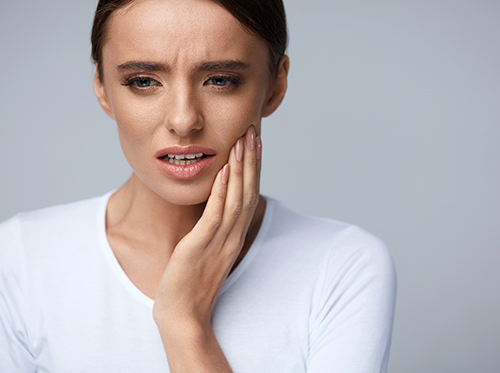Headaches: The Dental Connection
April 10th, 2024

Many people suffer through headaches for years without getting to the root cause of their problem. If you find yourself constantly popping painkillers to get through the day, it might be worth a trip to see a medical professional – but it may not be the person you think.
Talking to our doctors can be a great start when dealing with chronic headaches, because dental issues frequently contribute to head pain. In fact, the American Academy of Craniofacial Pain estimates that 80% of headaches are caused by muscle tension, which often originates in the jaws.
What Do Tension Headaches Feel Like?
A tension headache can originate on one side of your head or can pervade your entire skull. Typically, tension headaches feel like a dull, throbbing ache inside your head. Some patients at our Green Bay office report that they feel as though a metal band has been wrapped around their head and is causing significant pressure. Several common symptoms suggest that tension headaches may be caused by dental issues:
- Feeling as though your head or scalp is painful to the merest touch
- Experiencing a dull or throbbing pain behind the eyes
- Clicking or popping sounds in your jaw joints
- Grinding teeth or clenching the jaws, particularly in times of anxiety or during the night
- Feeling as though your jaw muscles are sore when you wake up from sleep
Dental Origins of Headaches
Several dozen muscles control your facial expressions, jaw movements, and motions such as swallowing. When these muscles are contracted for long periods of time, tension builds up within the muscle and can lead to headaches. This may happen if you clench or grind your teeth at night, your bite is misaligned, or you have muscle imbalances in the jaw or neck.
Dental Treatments for Tension Headaches
Fortunately, a trip to Oak Grove Dentistry can be a fruitful way to alleviate your headaches, including the following treatments:
- Bite. In many cases, correcting your bite through orthodontics releases the stress on your jaw and muscles, and reduces the frequency of headaches.
- Nightguard. A nightguard, which resembles a sports mouthguard, may also be helpful if you frequently grind your teeth or clench your jaws during sleep. Nightguards distribute the tension from your clenched jaws and reduce the possibility of dental damage.
- Physical therapy and relaxation. Correcting the posture of your shoulders, neck, and head may alleviate muscle tension associated with headaches.




 Website Powered by Sesame
24-7™
Website Powered by Sesame
24-7™